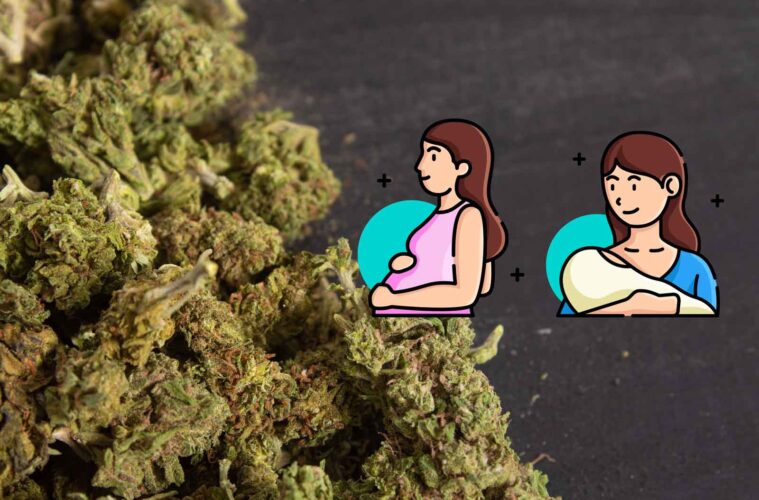Although the Canadian government has made cannabis legal, this does not necessarily make it safe. Unlike alcohol, what cannabis can do to an unborn baby during pregnancy has not yet been adequately researched and interpreted.
With cannabis, neither the potential effects nor a safe level of use in pregnancy are known. Thus, it is recommended that similar public health messaging be used: that it is safest not to use alcohol or cannabis in pregnancy.
While evidence is limited, the short and long-term effects of cannabis on the brain have been explored. Potential effects for people, including pregnant women can include:
- Confusion
- Sleepiness
- Loss of concentration
- Loss of memory
- Increased poor judgment
- Delayed reaction time
- Anxiety
- Fear
- Panic

These can all affect a parents ability to plan and prepare for their child and can interfere with the mother and child being able to attach early along with many other parts of parenting.
During pregnancy, cannabis is often taken along with other substances, such as alcohol and we know that alcohol is harmful to the unborn baby.
If cannabis is taken by smoking, like other forms of smoking, it can disrupt the supply of oxygen and nutrients to the fetus, which may result in limited growth of the unborn baby in total length, head size and body wight. This may lead to even more serious results such as premature birth, miscarriage, and stillbirth.
Although there still remains conflicting evidence as to the safe level of cannabis use for pregnant women, until more is known, it is safest to avoid cannabis use while pregnant, while breast feeding and around children.
Reference:
